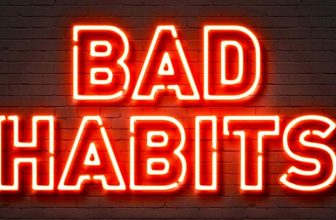
Drug withdrawal symptoms are one reason many people continue to abuse substances even when they know the consequences of doing so. The body reacts negatively to the sudden loss of the preferred substance.
It cannot function properly without the drug and time will be needed to restore the natural balance. What does the body experience during drug withdrawal?
1. Insomnia
Insomnia is one of several common withdrawal symptoms. Fortunately, it only lasts a short time as the body works to remove the drug and become clean. Establish sleep rituals to help you get a good night’s sleep.
2. Irritability
Irritability is a natural response to changes in a person’s environment. When a person is withdrawing from drugs or alcohol, they undergo numerous changes in a short time. Once the drugs leave their system, the irritability tends to fade in most people. However, for some, it is simply part of their natural personality.
3. Depression
When a person begins withdrawing from a drug, neurotransmitters don’t know how to respond. They have become dependent on the drug and it is no longer present. This can lead to symptoms of depression in a person who has never struggled with this mental issue before and worsen symptoms in those who have already been diagnosed with this condition.
4. Anxiety
Anxiety is to be expected in a person who is withdrawing from drugs. Many people use alcohol and drugs to relax. When this substance is no longer present, they don’t know how to calm themselves. They don’t have other coping mechanisms and need to develop them as part of the treatment process.
5. Cravings
A person will crave the drug of choice during the withdrawal process. They need help to manage these cravings. Without that help, they may begin using drugs again to manage their cravings. A distraction might help until the craving passes or a person can exercise to get a natural high rather than an artificial one.
6. Hallucinations
A person might see or hear things that aren’t there during drug withdrawal. These hallucinations may put them in harm’s way. Working with medical professionals during the withdrawal process can help manage these symptoms and keep them safe from harm.
7. Nausea
Nausea is a problem many people experience when withdrawing from drugs. They need to remain hydrated and replace electrolytes to avoid health issues. Many people benefit from following the BRAT diet and eating small meals.
8. Diarrhea
As with nausea, the BRAT diet may be of help to people suffering from diarrhea during drug withdrawal. This symptom is commonly seen in people withdrawing from opioids. Remain hydrated and take probiotics to promote good digestive health as the drugs leave the body.
9. Sweating
Many people withdrawing from alcohol find they sweat excessively. The elevated heart rate that comes with alcohol use leads to excessive perspiration. Men and women who abuse opioids might also find they sweat when withdrawing from drugs because they have an elevated body temperature.
10. Shaking
Shaking is another common symptom seen during drug withdrawal. The body must adjust to the lack of drugs in the system. Shaking is one way it attempts to do so.
Drug withdrawal symptoms can be very unpleasant, particularly when a person tries to withdraw on their own. Work with medical professionals to manage this process and make it easier.
In addition, having a medical team nearby is important, as certain withdrawal symptoms, if not managed, can lead to death. It’s always better to be safe than sorry and seek help with withdrawing. It’s the first step toward a better life.









